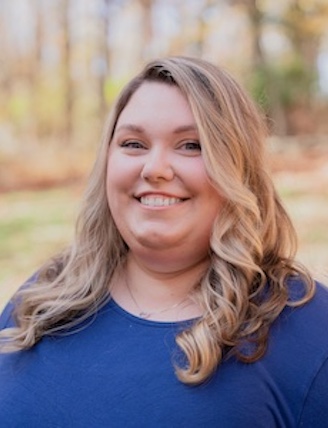No-closing-cost mortgage: Does it make sense for you?
Contributed by Karen Idelson
Jan 31, 2026
•5-minute read

Important Legal Disclosure:
Any figures, interest rates, loan examples, and market data referenced in this article are hypothetical or aggregated for educational purposes only. They are not intended to reflect current pricing, available terms, or personalized loan options for any consumer. This content does not constitute an advertisement of credit terms, a solicitation or offer to extend credit, or a rate quote under federal or state lending laws. Actual mortgage rates and terms are determined by individual financial qualifications, property characteristics, market conditions, and other factors, and are subject to change without notice.
If you are seeking current, real-time mortgage rate information please refer to the official live rate information and product details published at RocketMortgage.com/rates, where current pricing and various loan terms are made available.
Homeownership is one of life’s biggest milestones, but the up-front costs can be overwhelming. Beyond your down payment, closing costs typically add another 3% to 6% of your home's purchase price to your expenses.
One option that can alleviate some of the pressure is a no-closing-cost mortgage. With it, your lender covers the up-front closing costs in exchange for a higher interest rate throughout your loan term.
While this can reduce your immediate financial burden, you’ll ultimately pay more over the life of your loan because of the increased monthly payments. However, there are situations where a no-closing-cost mortgage still makes a lot of sense.
What is a no-closing-cost mortgage?
A no-closing-cost mortgage, also known as a zero-closing-cost mortgage, is a home loan where your lender pays the up-front closing costs on your behalf. In return, you agree to pay a higher interest rate.
If you’re a first-time home buyer, you’re likely facing the challenge of saving for both a down payment and closing costs. When you're already stretching your budget, having to pay thousands more at closing can feel impossible.
So, a no-closing-cost mortgage can be helpful. However, it’s important to remember that you'll pay less money initially but more money over the life of your loan. If you have the funds to cover closing costs now, that’ll save you money in the long run.
How much are mortgage closing costs?
Closing costs typically range from 3% to 6% of your home's purchase price. On a $300,000 home, that means you could pay between $9,000 and $18,000 in closing costs alone.
You won’t be blindsided by the closing costs because your lender is required to give you an estimate ahead of time, at least 3 days before closing on your mortgage. However, they can seem very high.
Some common closing costs include:
- Home appraisal fees
- Title insurance
- Property taxes
- Homeowners insurance
- Mortgage origination fees
- Application fees
- Processing fees
There may be additional costs depending on your loan type and lender requirements, so this list is just a starting point.
How do no-closing-cost mortgages work?
To be clear, a no-closing-cost mortgage doesn’t mean you’ll never have to pay closing fees. Your lender incorporates these expenses into your loan through a higher interest rate, which affects your mortgage amortization schedule. This means costs are not eliminated, but rather paid over time.
For example, instead of paying $15,000 in closing costs up front, you might see your interest rate increase by 0.25% to 0.5%. Over a 30-year loan, this translates to an additional $50 to $150 in your monthly payment, depending on your loan amount.
On the positive side, you'll have more cash immediately available for other homeownership expenses, emergency funds, or home improvements. However, you'll build equity more slowly since a larger portion of your monthly payment will go toward interest.
Some lenders may include a prepayment penalty to protect their investment. This prevents you from refinancing or paying off your loan early without penalty, typically for the first few years.
However, not all lenders require this – Rocket Mortgage® doesn't charge prepayment penalties on our loans.
No-closing-cost vs. traditional mortgage
Whether you save or lose money with a no-closing-cost mortgage often depends on how long you stay in your home.
Let’s say you’re looking at a $415,000 home with a 30-year mortgage at 6.5% interest and $12,450 in closing costs (3% of the home price).
With a traditional mortgage, you'll pay the $12,450 up front and have monthly payments of $2,623. With a no-closing-cost mortgage, your lender covers those costs but increases your interest rate to approximately 6.75%. This raises your monthly payment to $2,692.
Over time, here’s how the mortgages compare.
|
Years lapsed |
Traditional mortgage |
No-closing-cost mortgage |
Difference |
|
1 |
$43,927 |
$32,300 |
-$11,627 |
|
5 |
$169,835 |
$161,501 |
-$8,334 |
|
10 |
$327,220 |
$323,002 |
-$4,218 |
|
15 |
$484,605 |
$484,503 |
-$102 |
|
20 |
$641,990 |
$646,004 |
+$4,014 |
|
25 |
$799,375 |
$807,505 |
+$8,130 |
|
30 |
$956,760 |
$969,006 |
+$12,246 |
In this example, the break-even point happens after about 15 years. If you plan to stay in your home longer than that, paying closing costs up front saves money. If you expect to move or refinance sooner, the no-closing-cost option could work in your favor.
Pros and cons of no-closing-cost mortgages
As with any type of loan, no-closing-cost mortgages have both benefits and drawbacks.
Pros
- Lower up-front costs: You can save your cash for unexpected expenses or home improvements, which can come in very handy during the stressful transition period of homeownership.
- More money toward a down payment: By redirecting closing cost funds to your down payment, you might avoid private mortgage insurance or get better loan terms. A larger down payment also means you start with more equity in your home.
- Ability to buy sooner: Instead of waiting for months or years to save for both a down payment and closing costs, first-time home buyers can start building equity faster instead of paying rent.
Cons
- Fewer lender options: Not all lenders offer no-closing-cost mortgages, which can limit your ability to choose a mortgage lender with the best rates and terms.
- Less equity built up front: With higher monthly payments, more of your money goes toward interest instead of the principal. This can limit your options for home equity loans or cash-out refinancing down the road.
- Higher total interest costs: The elevated interest rate compounds over time, so a no-closing-cost mortgage can end up being thousands more than a traditional mortgage. This relationship between interest rate vs home price becomes more important the longer you stay in your home.
Alternatives to no-closing-cost mortgages
There are more paths to homeownership besides a no-closing-cost mortgage. Here are a few options you can consider, especially when thinking about initial costs:
- Negotiate with your seller: Ask the seller to cover a part or all your closing costs as part of your purchase offer. In buyer-friendly conditions, sellers may agree to help close the deal, but in competitive markets, this may not work.
- Look into first-time buyer programs: Some state and local governments offer grants and low-interest loans for qualified buyers. Make sure to research your options.
- Consider a personal loan: This option often isn’t ideal because of high interest rates, but it might make sense if you can pay it off quickly and secure a better mortgage rate.
FAQ about no-closing-cost home loans
These are the questions you might be asking yourself as you’re considering your options.
Who offers no-closing-cost mortgages?
Lenders vary in almost every aspect of what they offer and who they’ll offer to, and no-closing-cost mortgages are no different. Lenders will take into account a number of factors when deciding whether to lend money to a borrower, including credit score, credit history, employment, and many more. Look for transparency and service level when evaluating lenders and inquiring about no-closing-cost mortgages.
Are there other ways to get a low-closing-cost mortgage?
You can try negotiating with your lender, as some fees can be either waived or reduced. Talking with your lender can give you a better idea on your options, and you might find a way to reduce up-front costs. Many cities and states also offer first-time home buyer programs to assist with down payments and closing costs.
Can you roll closing costs into the mortgage?
In simple terms, yes – you can roll closing costs into your mortgage, but not all lenders allow you to, and the rules can vary depending on the type of mortgage you’re getting. If you choose to roll your closing costs into your mortgage, you’ll have to pay interest on those costs over the life of your loan.
The bottom line: A no-closing-cost mortgage may be right for you
A no-closing-cost mortgage makes a lot of sense for some people and little for others. Every buyer is different.
It can be a smart option when you need to keep your cash for other things or plan to move within 10 – 15 years. If money is tight but you're ready to buy a home, it’ll help you get started sooner.
But if you can afford to pay closing costs up front and plan to stay in your home for many years, paying those costs now will save you money over time.
You should do as much research as you can, and don’t stop asking questions to hold your lender accountable in terms of transparency.
The Home Loan Experts at Rocket Mortgage will help you find the right home loan option for you. Start your application now!
Home Equity Loan product requires full documentation of income and assets, credit score and max loan-to-value (LTV), combined loan-to-value (CLTV), and home equity combined loan-to-value (HCLTV) ratios. Requirements were updated 2/5/2024 and are tiered as follows: 680 minimum FICO with a max LTV/CLTV/HCLTV of 80%, 700 minimum FICO with a max LTV/CLTV/HCLTV of 85%, and 740 minimum FICO with a max LTV/CLTV/HCLTV of 90%. Your debt-to-income ratio (DTI) must be 50% or below. Valid for loan amounts between $45,000.00 and $500,000.00 (minimum loan amount for properties located in Michigan is $10,000.00). Product is a second standalone lien and may not be used for piggyback transactions. Product not available on Schwab products. Guidelines may vary for self-employed individuals. Some mortgages may be considered “higher priced” based on the APOR spread test. Higher priced loans are not allowed on properties located in New York. Additional restrictions apply. Not available in Texas. This is not a commitment to lend.
Refinancing may increase finance charges over the life of the loan.

Sam Hawrylack
Samantha is a full-time personal finance and real estate writer with 5 years of experience. She has a Bachelor of Science in Finance and an MBA from West Chester University of Pennsylvania. She writes for publications like Rocket Mortgage, Bigger Pockets, Quicken Loans, Angi, Well Kept Wallet, Crediful, Clever Girl Finance, AllCards, InvestingAnswers, and many more.
Related resources
6-minute read
Biweekly mortgage payments: Are they a good choice for you?
Biweekly mortgage payments help pay off your loan faster by applying an extra payment to the principal yearly. Find out if biweekly payments are right for you.
Read more

7-minute read
The costs of buying a house that first-time home buyers should prepare for
There are many ongoing and up-front costs associated wit...
Read more

7-minute read
What to do if your mortgage was denied by your underwriter
Was your mortgage application denied during the underwriting process? Read our article about the steps you can take to improve your chances when applying again.
Read more